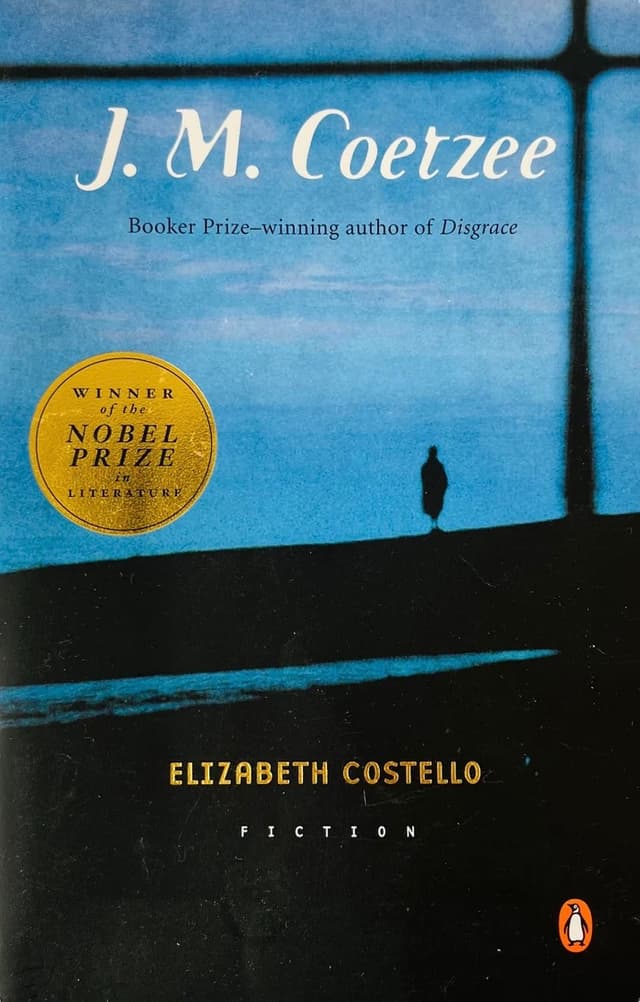
Book Review Summary: Elizabeth Costello
Introduction
"Elizabeth Costello" is a thought-provoking novel written by J.M. Coetzee, a renowned South African author known for his literary prowess. This book, published in 2003, explores the life of Elizabeth Costello, a fictional character who serves as a vessel for Coetzee's philosophical musings and explorations. Through a series of formal addresses, Elizabeth Costello delves into topics such as storytelling, the nature of evil, and the impact of literature on society. In this article, we will delve into the book's content, analyze readers' opinions, and provide reasons for both recommending and not recommending this literary gem.
About J.M. Coetzee
J.M. Coetzee, born John Maxwell Coetzee, is an accomplished author and academic from South Africa. He has made significant contributions to the literary world with his novels, essays, and translations. Coetzee's works often explore themes of identity, morality, and the human condition. He has received numerous accolades, including two Booker Prizes and the Nobel Prize in Literature in 2003. Coetzee's writing style is known for its intellectual depth and poetic prose, making him a highly respected figure in the literary world.
Analysis of Views
- Innovative Storytelling: Readers praise the book's innovative structure, which consists of eight formal addresses delivered by Elizabeth Costello. This approach allows Coetzee to delve into various philosophical and societal issues while exploring the protagonist's life. The use of this format adds depth and complexity to the narrative, making it a standout feature of the book.
- Thought-Provoking Content: Many readers find the book's content thought-provoking and engaging. The exploration of topics such as storytelling, evil, and animal rights sparks discussions and encourages readers to reflect on their own beliefs and values. The book challenges conventional thinking and encourages readers to question established norms.
- Emotional Depth: Elizabeth Costello's character is described as emotionally complex and deeply introspective. Readers appreciate the depth of her emotions and her struggles with aging, self-doubt, and the impact of her writing on society. The portrayal of her character adds depth and resonance to the narrative, making it a compelling read.
- Intellectual Stimulation: The book's intellectual nature is a significant draw for readers who appreciate complex themes and ideas. The exploration of philosophical concepts and the examination of literature's role in society provide intellectual stimulation and challenge readers to think critically about their own beliefs.
- Lack of Cohesion: Some readers find the book's structure and cohesion lacking. The inclusion of essays written by Coetzee under the guise of Elizabeth Costello's speeches can be confusing for some readers, leading to a disjointed narrative. The lack of a clear plotline and character development may also detract from the overall reading experience for some readers.
Reasons for Recommendation
- Originality: Readers recommend "Elizabeth Costello" for its originality and innovative storytelling approach. The use of formal addresses to explore philosophical concepts adds depth and creativity to the narrative, making it a standout work of literature.
- Thought-Provoking Content: The book's thought-provoking content resonates with readers who appreciate intellectual stimulation and engaging themes. The exploration of complex ideas and societal issues sparks discussions and encourages readers to reflect on their own beliefs and values.
- Emotional Depth: Elizabeth Costello's character is portrayed with emotional depth, making her struggles relatable and compelling for readers. The exploration of her life and her journey towards self-discovery adds depth to the narrative and makes it a compelling read.
- Intellectual Stimulation: The book's intellectual nature appeals to readers who enjoy exploring complex ideas and philosophical concepts. The challenging themes and intellectual stimulation make it a valuable addition to any literary collection.
Reasons for Not Recommendation
- Lack of Cohesion: Some readers find the book's structure and cohesion lacking, leading to confusion and a disjointed narrative. The inclusion of essays written by Coetzee under the guise of Elizabeth Costello's speeches can be confusing for some readers, detracting from the overall reading experience.
- Plot-Less Nature: The book's plot-less nature may not appeal to readers who prefer more traditional narratives with clear plotlines and character development. The lack of a clear plotline may leave some readers feeling unsatisfied with the reading experience.
Conclusion
"Elizabeth Costello" by J.M. Coetzee is a thought-provoking novel that explores complex themes through innovative storytelling techniques. While some readers appreciate its originality, intellectual stimulation, and emotional depth, others find it lacking in cohesion and plot development. Overall, "Elizabeth Costello" is a book that challenges conventional thinking and encourages readers to reflect on their own beliefs and values. Its exploration of philosophical concepts and societal issues makes it a valuable addition to any literary collection, but it may not be suitable for readers who prefer more traditional narratives with clear plotlines and character development.